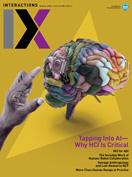Authors: Kristen Reynolds
Posted: Wed, October 20, 2021 - 10:31:41
As an epigraph to her incomplete book, Parable of the Trickster, Octavia Butler writes, “[T]here’s nothing new under the sun, but there are new suns.” I take this to be her call for opening ourselves up to those other worlds that are already here, yet we have been conditioned to ignore. To seek them out and challenge ourselves to explore and embody the different modes of being that emerge within them. Butler’s vision of the current world and the other worlds we might one day inhabit is far from utopian in nature. Even her Parables series reveals a possible future in which Butler’s version of a more just, sustainable, and philosophically mutable world thrives in a bubble alongside a white, colonialist world that endures just beyond the trees that encapsulate it. People in this space must constantly negotiate the axis of Afrofuturist possibility and colonialist modernity that structures the world as many of us have come to know it. In these negotiations, Butler grapples with what it means to access otherwise ways of being in a world where technologies of whiteness and coloniality maintain and expand European/American imperial projects globally. How, then, can we use Butler’s call to elucidate the theory and the practice of Black techno past/present/future? A partial answer to this question resides in Black speculative visioning in N. K. Jemisin’s creative works and in Simone Browne’s concept of dark sousveillance.
Jemisin’s work, for example, presents methods that challenge anti-Blackness, resisting the colonial disciplining that limits our vision of possible futures. Her Broken Earth Trilogy begins with a literal earth-shattering rupture—an earthquake with global implications that is brought on by the power of a Black man who desires to set the stage for the creation of a new world. Through this rupture, we are exposed not simply to something new but to a different way of being that has been there all along. Jemisin questions the limits of the world we have been conditioned to accept and explores what might be found when we break away from it to explore a landscape beyond those limits. Because Jemisin’s work also contends with Black world/love/meaning-making amid the backdrop of anti-Black violence, the trilogy can also be read as asking and attempting to answer two questions: What do we know about Blackness and what do we want to know about Blackness? Put another way, what do we know about Blackness beyond the violence and dispossession that white supremacist coloniality foregrounds? What of Blackness exists in excess of these limits? The work of Afrofuturism (and the Black speculative more broadly) offers an answer to Black being in excess of the limitations of the white colonial mind, Black being in and as rupture, Black being beyond white imagination. With this work in mind, we learn not only of Black being in resistance to anti-blackness but also of Black being as the foundation for different worlds and the technologies that might emerge within them. Afrofuturist practice as presented in Butler’s and Jemisin’s fictional worlds give us the tools to think technology otherwise and develop road maps for living alternate technological worlds. They are not promises, but possibilities.
This reading of the philosophies at work in Butler’s and Jemisin’s narratives facilitates my analysis of Black critiques of technology as Afrofuturist practice. Consider, for example, Simone Browne’s discussion of dark sousveillance in Dark Matters. In the introduction, she describes it as “an imaginative place from which to mobilize a critique of racializing surveillance…[one which] plots imaginaries that are oppositional and that are hopeful for another way of being.” She is clear in articulating that “acts that might fall under the rubric of dark sousveillance are not strictly enacted by those who fall under the category of blackness” (emphasis mine). Dark sousveillance as a rupturing Afrofuturist practice centers Blackness and in so doing situates Black folks as the architects of possible, otherwise techno-futures. In these futures, all people who are subjected to the dehumanizing gaze of white epistemologies and surveillance technologies find opportunities for realizing alternative ways of being. Put another way, Afrofuturism is a Black epistemic project generating worlds that counter and/or erode surveillance as we know it. In this worldmaking, we are privileged to encounter Blackness as both a foundation to and entry point into other relations of seeing and being seen.
The ideal project and practice of Afrofuturism resides in part in how it transforms innovation and traces its lineages. How does Harriet Jacobs’s decision to steal away to an attic—away from the sight of those who might harm her—anticipate Black practices of hiding away in the present moment? How are Black organizers’ and activists’ practices of thwarting today’s conventions of surveillance (phone, video, social media) both rooted in a long history of Black counter/antisurveillance and generative of otherwise ways of seeing and being seen (or not)? These issues are of course much more complex than presented here, but it remains that these Afrofuturist ruptures, these innovations, are happening around us daily. It is incumbent upon us all to see them. Doing so requires that Blackness be seen as the transformative worldmaking force that it is. Afrofuturism gives us that.
Posted in: on Wed, October 20, 2021 - 10:31:41
Kristen Reynolds
View All Kristen Reynolds's Posts







Post Comment
No Comments Found